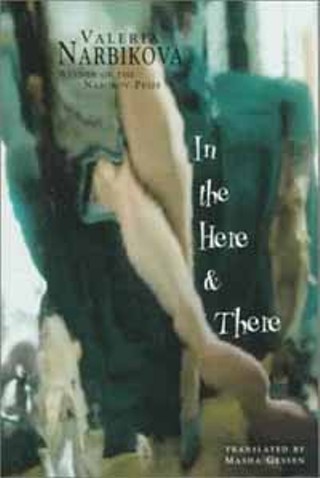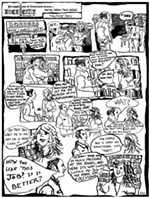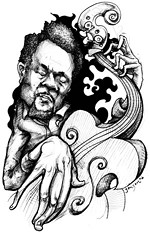Book Reviews
Recent Titles Reviewed
By Harvey Pekar, Fri., Oct. 20, 2000

Day Equals Night
by Valeria Narbikovatranslated by Seth Graham
Ardis Publishers, 160 pp., $32
In the Here & There
by Valeria Narbikovatranslated by Masha Gesser
Ardis Publishers, 200 pp., $32
During the Soviet era there were always a few Russian authors who managed to learn about their own modernists and keep abreast of literary developments outside the USSR. Stylistically advancedsamizdat (underground) writing began appearing in the Soviet Union in the 1960s, and Soviet authorities were unable to halt its spread. When the USSR rotted and fell apart, a surprisingly large number of unorthodox writers appeared to take advantage of the new openness.
Easily among the best of them, and a splendid author by international standards, is Valeria Narbikova, whose first short novel, Day Equals Night, appeared in 1989, followed by eight others, including In the Here & There. Her work was initially viewed as pornographic in Russia because of its sexual references, which, however, aren't explicit by Western standards. Females weren't supposed to write about sex in Russia, but inevitably they will, partly due to Narbikova's breakthrough in this area.
Actually, very little of Narbikova's work is explicit about anything; she's a very allusive writer. Her plots are very sketchy and serve as a springboard for her poetic prose, ironic humor, and philosophical rumination. In Day Equals Night, she describes the relationship between Sana, her husband Avvakum, her lover Otmatfeian, whose wife or ex-wife shows up, and Chiashchiazyshyn. Sana's a unique character in Russian literature, a female bohemian who doesn't believe in monogamy. It's difficult for her to keep her men in line, though. They keep showing up at the same place and time and don't get along well. To complicate matters, Chiashchiazychyn is attracted by Otmatfeian, whom he tries to get to by having a physical relationship with Sana. "Chiashchiazychyn ... was looking at her as Andrei Bely had looked at Blok's wife, as D'Anthes had looked at Pushkin's wife. Of course Andre Bely did not love Blok's wife but Blok himself, and D'Anthes loved Pushkin, and hid it." As that passage indicates, Narbikova frequently refers to Russian literary figures. To her they seem alive, as if the past, present, and future exist at the same time.
Open relations are usually a pain in the ass, with some participants having more power than others. Consequently, the weaker ones frequently get dumped on, frozen out, and, on top of everything else, made to feel guilty about it. Sometimes they're reduced almost to voyeurs, which happens to Chiashchiazyshyn, who, however, seems to get some pleasure from this role. Narbikova's portrait of these open relationships really hits the nail on the head, although she probably thinks they're worth enduring.
Ménage situations are dealt with again in In the Here & There. Sisters Yezdandukta and Petia get involved with a sculptor named Boris, who loves Petia but marries Yezdandutkta. Other characters include Kostroma and Dyl, who collaborate to hatch a monster called an "andy-baby."
Narbikova speculates about all sorts of things, such as the reality of text vs. the reality of life, "This alternate reality (the text) cannot contain within itself the other reality (life)..." She notes, "It's a rare country where no one lives because everyone's struggling, a country of experiments -- but life is not an experiment, life is only for life."
It's probably a coincidence, but Narbikova's writing is reminiscent of Gertrude Stein's, e.g., "Avvakum was bigger and better than Chiashchiazyshyn, who was smaller and worse." Like Stein, Narbikova might be considered a cubist writer because she sees a thing and presents it to us from various angles and viewpoints. Both deconstruct and put back together language, often in ways that are humorous.
I'm sure there are a lot of other good writers besides Narbikova in Russia now, but the country is so screwed up that very few people take its literature seriously, especially since it wasn't long ago that their most celebrated writers were hacks who hewed to the socialist realism doctrine. Good luck, Narbikova, you'll need it.








